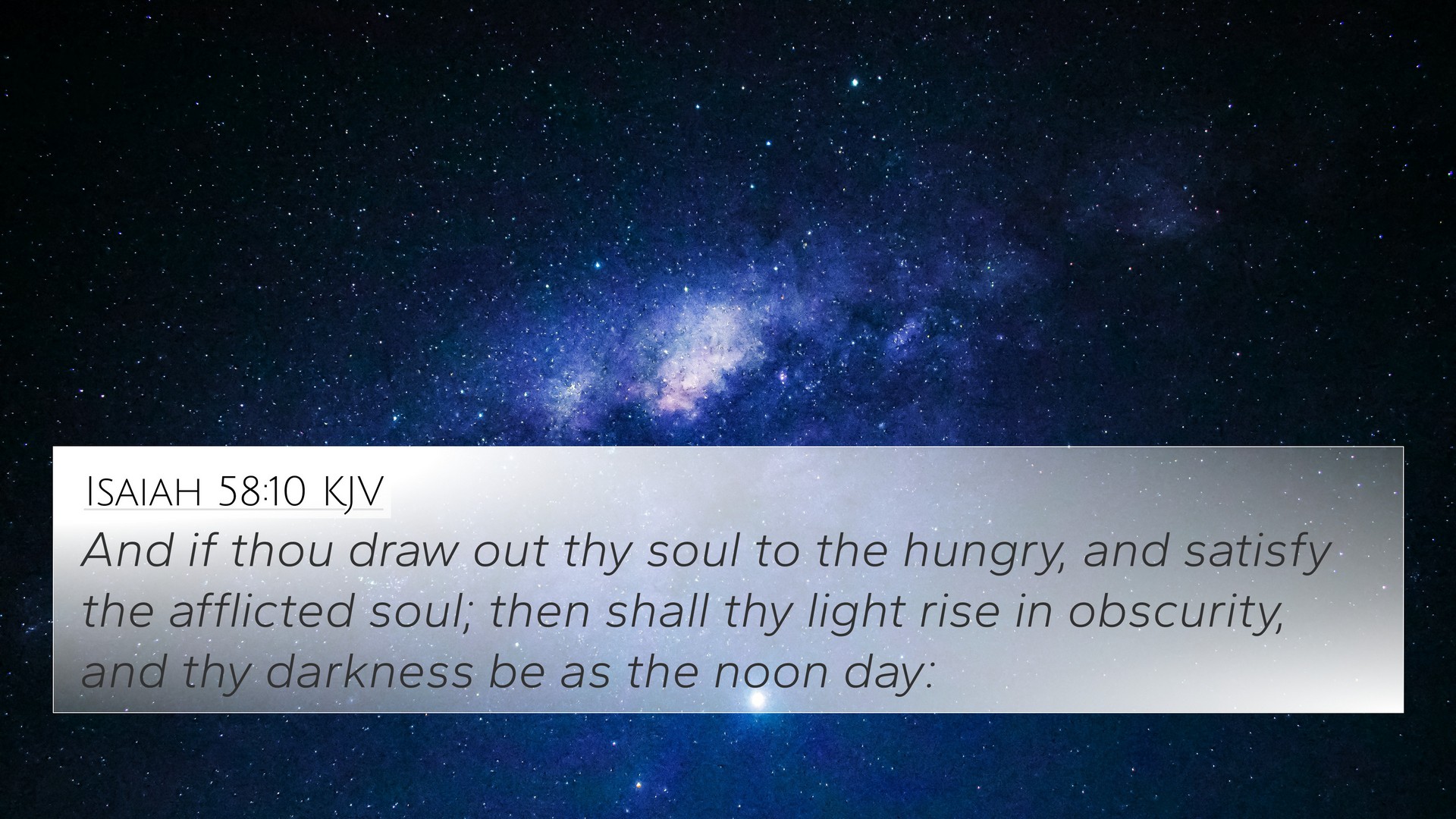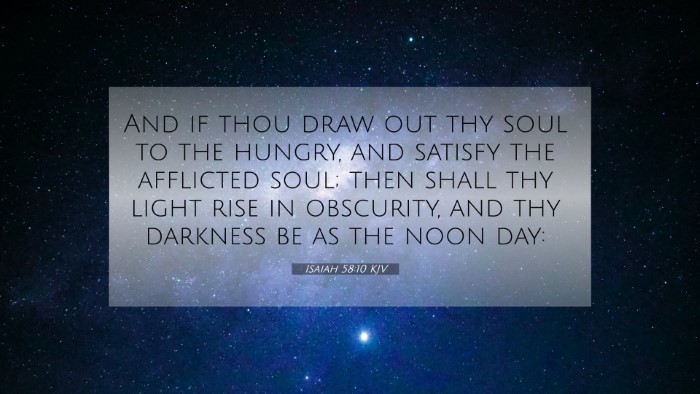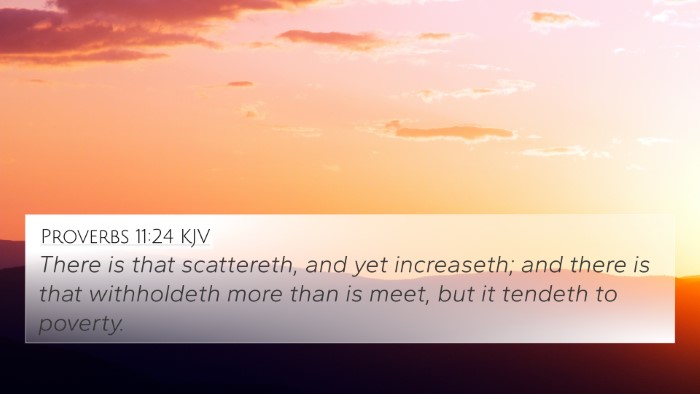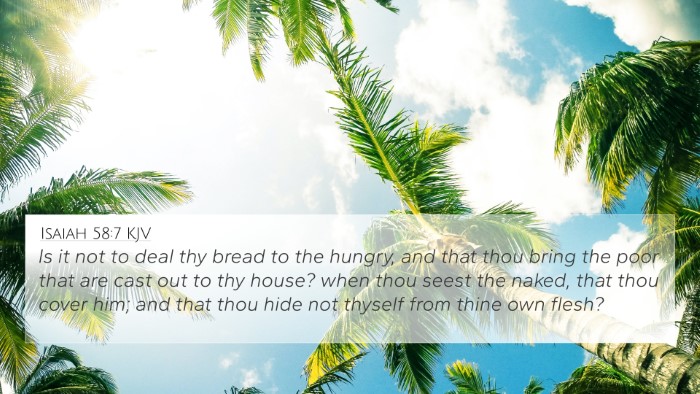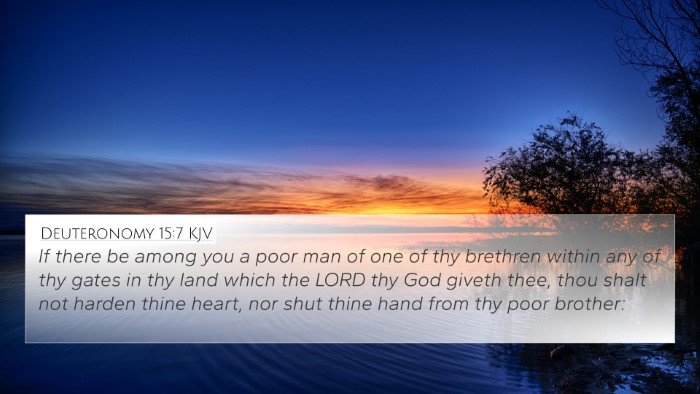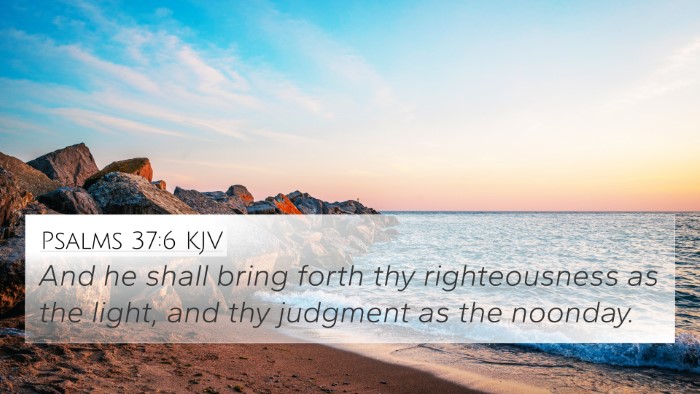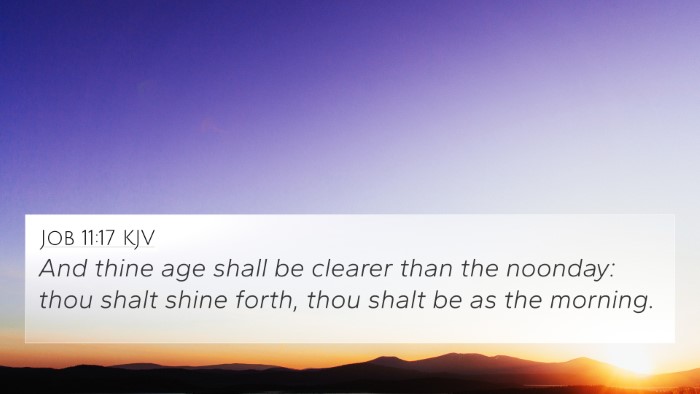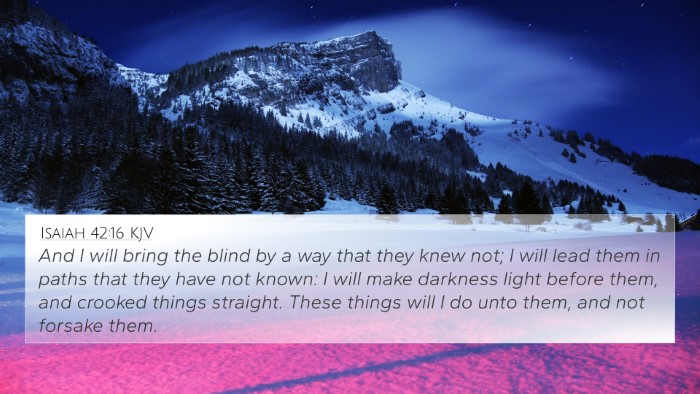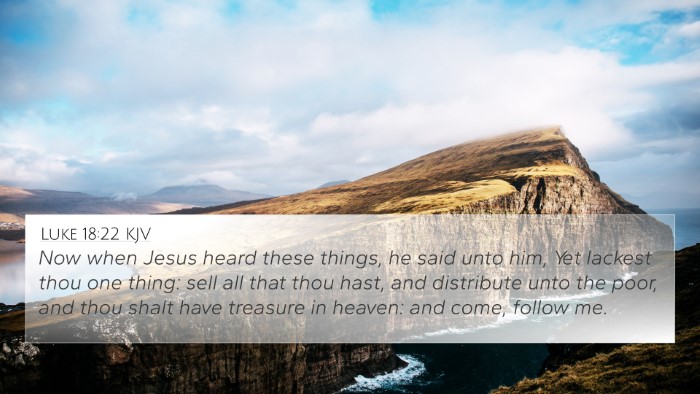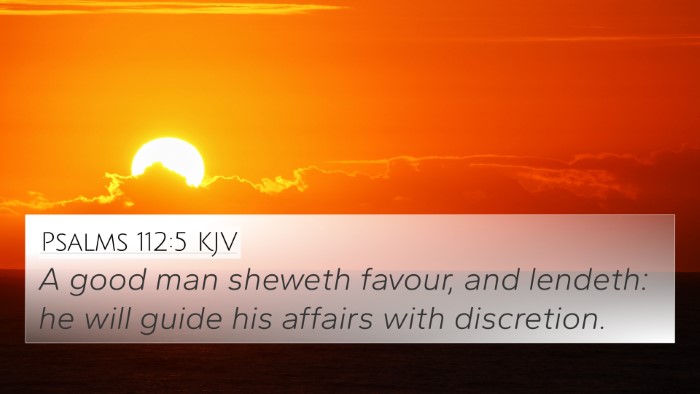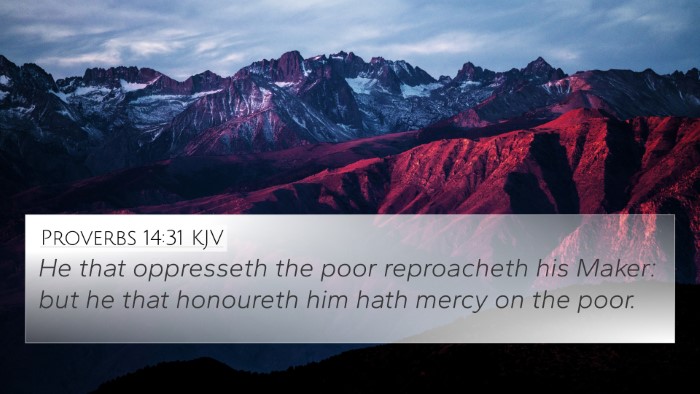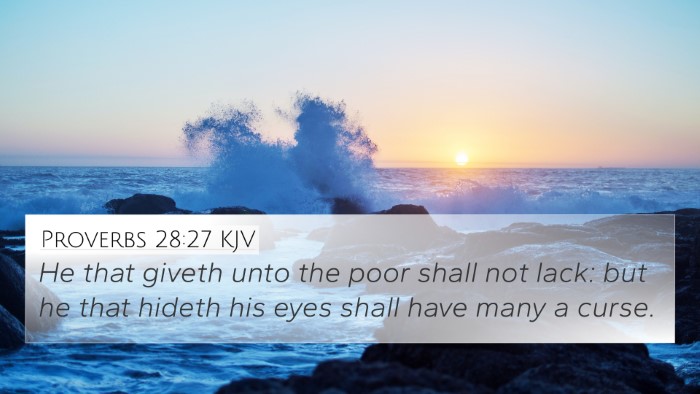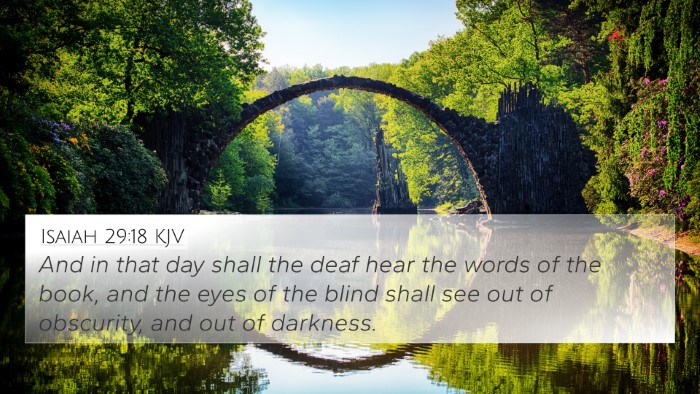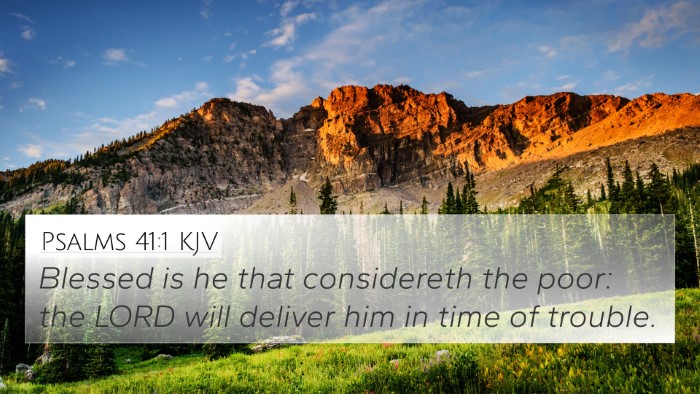Understanding Isaiah 58:10
Isaiah 58:10 states: "And if you pour yourself out for the hungry and satisfy the desire of the afflicted, then shall your light rise in the darkness and your gloom be as the noonday."
This verse holds significant meaning within the context of Isaiah’s message about true religion and social justice. By examining commentaries from esteemed theologians such as Matthew Henry, Albert Barnes, and Adam Clarke, we can glean deeper insights into its interpretation.
Key Themes
- Self-sacrifice: The call to "pour yourself out" emphasizes the importance of selfless service to others.
- Compassion for the Afflicted: It highlights the need to provide for the needy and to actively satisfy their desires.
- Divine Response: The promise of a resulting “light” in darkness suggests that God blesses those who are charitable.
Commentary Insights
Matthew Henry's Commentary
Henry emphasizes that genuine acts of kindness and charity during times of distress attract divine favor. He illustrates that pouring oneself out signifies deep commitment to alleviate others' suffering, which not only benefits the needy but also enhances one’s spiritual illumination.
Albert Barnes' Notes
Barnes interprets the metaphorical “light” as indicating spiritual wisdom and clarity. He suggests that when one engages in acts of service and care, their own struggles and darkness will give way to enlightenment, making their path clearer.
Adam Clarke's Commentary
Clarke points out that the emphasis on “satisfying the desire of the afflicted” reflects the need for holistic support—not just physical sustenance, but also emotional and spiritual care. He notes that such generosity leads to a reciprocal blessing from God.
Bible Cross-References
Isaiah 58:10 interlinks with several other passages throughout both the Old and New Testaments, shedding light on the themes of compassion, service, and divine reward:
- Matthew 25:35-40: Jesus identifies Himself with the hungry and thirsty, stating that when we serve them, we serve Him.
- Proverbs 19:17: This verse notes that he who is kind to the poor lends to the Lord, and He will reward them.
- James 1:27: Defines pure religion as caring for orphans and widows, aligning with Isaiah’s call to serve the needy.
- Psalms 112:4: Describes how the righteous shine in darkness; a theme that complements Isaiah’s promise of light.
- Galatians 6:2: Encourages believers to bear one another’s burdens, echoing the sentiments of self-sacrifice.
- Luke 6:38: Promises that with the measure you use, it will be measured back to you, reinforcing the idea of reciprocal blessing.
- 1 John 3:17-18: Stresses the importance of not just word, but deed in demonstrating love for brothers and sisters in need.
Thematic Connections
When utilizing a bible cross-reference guide, we find that Isaiah 58:10 can be viewed within broader themes of:
- Social Justice: The call to uplift the poor connects with the messages of justice found throughout the Old Testament.
- Compassionate Living: Both the Gospels and the Epistles echo the importance of living a life marked by compassion.
- Spiritual Illumination: The resulting light signifies an enlightenment and blessing, which is a recurring biblical theme.
Practical Applications
Understanding Isaiah 58:10 encourages believers to reflect on the practical implications of their faith:
- Acts of Charity: Engage actively in charitable acts that directly address the needs of the affliction.
- Community Involvement: Foster partnerships with local organizations aimed at alleviating hunger and poverty.
- Spiritual Growth: Seek personal transformation through acts of goodness, cultivating a deeper relationship with God.
Conclusion
Isaiah 58:10 serves as a profound encouragement to live out faith through actionable love for others. By pouring ourselves out for those in need, we not only fulfill a divine command but also illuminate our own lives with God's promised light. The thematic connections and cross-references provided serve as rich resources for deepening our understanding of this powerful verse.
